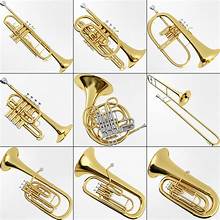Uncategorized
The Best Instruments for Jazz Musicians
The Best Instruments for Jazz Musicians
Jazz is a genre that thrives on creativity, improvisation, and expressive sound. Whether you’re playing in a big band, a small combo, or jamming with friends, choosing the right instrument can significantly impact the overall sound and vibe of your performance. While jazz has a wide range of instruments, some are more closely associated with the genre, offering the versatility and rich tonal qualities that make it unique.
In this article, we’ll explore the best instruments for jazz musicians, helping you understand which instruments are essential to the genre and how they contribute to creating that unmistakable jazz sound.
1. Saxophone
The saxophone is one of the most iconic and versatile instruments in jazz. Known for its ability to produce both smooth and bold sounds, the saxophone is a key player in jazz bands, whether in a solo or section role. The instrument’s distinct tone and range make it a favorite among jazz musicians.
- Types of Saxophones: The tenor and alto saxophones are the most popular for jazz, although soprano and baritone saxophones are also used in certain settings.
- Famous Players: Legendary jazz saxophonists like Charlie Parker, John Coltrane, and Lester Young have helped define the sound of jazz with their mastery of the saxophone.
Whether playing melodic lines or improvising, the saxophone’s expressiveness and wide dynamic range make it a must-have in any jazz band.

2. Trumpet
The trumpet has a long history in jazz, and it remains one of the genre’s most important instruments. Known for its bright, powerful sound, the trumpet is often the lead instrument in jazz bands. Its ability to play both fast, intricate lines and rich, soulful notes allows it to shine in both big band arrangements and small combo performances.
- Famous Players: Jazz trumpeters such as Louis Armstrong, Miles Davis, and Dizzy Gillespie have influenced generations of musicians with their innovative playing styles and unique sound.
- Role in Jazz: In jazz ensembles, the trumpet typically plays lead parts or takes the spotlight in solos. It’s an instrument that requires strong technical skill but offers endless opportunities for improvisation and personal expression.
The trumpet’s sharp attack and ability to cut through a mix make it a cornerstone of the jazz sound.
3. Double Bass (Upright Bass)
The double bass, also known as the upright bass, is a critical part of the rhythm section in jazz. It provides the harmonic foundation and groove for the rest of the band, playing walking bass lines or more intricate jazz patterns. Its deep, resonant tone and ability to be plucked or bowed make it one of the most flexible instruments in jazz.
- Famous Players: Great jazz bassists like Charles Mingus, Paul Chambers, and Ray Brown have created unforgettable bass lines that serve as the backbone of many jazz compositions.
- Role in Jazz: The bass player helps to keep time, supports the harmony, and provides a solid foundation for soloists. In jazz, bass players are often involved in improvisation, contributing to the dynamic, ever-changing nature of the genre.
Whether playing the walking bass lines in swing or providing complex and nuanced rhythms in modern jazz, the double bass plays a vital role in shaping the sound of jazz.
4. Piano
The piano is one of the most versatile instruments in jazz, serving both as a harmonic and melodic instrument. It can be used to accompany soloists, create complex chords, or provide rhythm through comping. The piano’s wide range makes it essential for both traditional and contemporary jazz, allowing it to adapt to any setting.
- Famous Players: Jazz piano greats like Thelonious Monk, Bill Evans, and Herbie Hancock have shaped jazz with their innovative harmonic techniques and unique approaches to improvisation.
- Role in Jazz: In addition to accompanying other instruments, pianists often take the lead in jazz solos, using their vast range of dynamics and harmonics to create intricate and expressive melodies. They also play an important role in providing chordal support during group improvisation.
Whether in a trio, a big band, or a solo performance, the piano is an indispensable part of jazz.
5. Drums
The drums are the heartbeat of any jazz band, laying down the rhythm and providing the pulse that keeps the music moving. In jazz, drummers play a more complex role than in many other genres, often providing subtle yet powerful contributions to both the rhythm and texture of a piece. Jazz drumming is known for its use of syncopation, polyrhythms, and improvisation.
- Famous Players: Legendary jazz drummers like Max Roach, Art Blakey, and Elvin Jones revolutionized drumming with their groundbreaking techniques and dynamic playing styles.
- Role in Jazz: The drummer drives the rhythm section, helping to create the foundation for solos and ensemble playing. They also contribute to improvisational sections, offering dynamic fills and responding to the energy of other band members.
The drum kit typically includes a bass drum, snare drum, tom-toms, hi-hat cymbals, and crash cymbals, all of which are used to create a variety of rhythmic patterns that propel the music forward.
6. Guitar
The guitar in jazz is a versatile instrument that can fill a variety of roles within the band. Jazz guitarists often use fingerpicking or plectrums to create a range of tonal qualities, from clean, crisp chord progressions to intricate solos. It can act as both a rhythm and lead instrument in a jazz ensemble.
- Famous Players: Guitarists like Wes Montgomery, Django Reinhardt, and Joe Pass have been instrumental in shaping the sound of jazz guitar with their virtuosic playing and groundbreaking chordal techniques.
- Role in Jazz: In smaller jazz combos, the guitar often plays rhythm, providing chord progressions or accompanying other instruments. However, it is also a strong solo instrument, able to improvise complex melodic lines that complement the overall sound of the ensemble.
The guitar’s ability to blend harmonic, melodic, and rhythmic elements makes it a powerful addition to any jazz band.
7. Clarinet
The clarinet has deep roots in jazz, particularly in early jazz and Dixieland music. It has a warm, mellow sound that works well in both solo and ensemble settings. Though it is less common in contemporary jazz compared to the saxophone or trumpet, the clarinet still holds an important place in the jazz tradition.
- Famous Players: Clarinetists like Benny Goodman and Sidney Bechet are jazz legends who contributed significantly to the genre with their unique clarinet sounds.
- Role in Jazz: The clarinet often plays melodies or harmonizes with other instruments, contributing to the texture of the group. It is also a great instrument for improvisation, adding a distinct voice to the jazz ensemble.
Although the clarinet is not as dominant in modern jazz as it once was, it remains a beloved instrument in the genre’s history.

8. Flute
The flute is a less common but highly expressive instrument in jazz. It is known for its bright, airy sound and ability to play both fast, intricate passages and long, flowing melodies. The flute is often used in more modern or experimental jazz, but it has also been featured prominently in classic jazz.
- Famous Players: Jazz flautists like Herbie Mann and Yusef Lateef have shown how the flute can add a unique texture to jazz compositions and improvisations.
- Role in Jazz: The flute can serve as both a solo instrument and an accompanist in jazz. Its light, airy tones can complement other instruments or take the spotlight in an improvised solo.
The flute’s distinct sound and its versatility in both melodic and harmonic roles make it an excellent choice for jazz musicians looking to add a unique touch to their band.
Conclusion
Jazz is a genre defined by its freedom of expression and improvisation, and the instruments used in jazz are just as versatile and dynamic. Whether you’re playing the powerful trumpet, the soulful saxophone, or the rhythmic drums, each instrument brings something unique to the table.
At Onebestluxetexas, we carry a wide range of musical instruments, including the best choices for aspiring jazz musicians. From saxophones and trumpets to pianos and drums, we have everything you need to create the perfect sound for your jazz ensemble. Explore our collection today and take your jazz journey to the next level!

